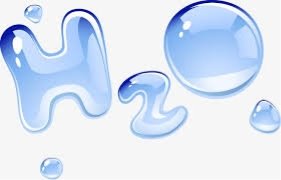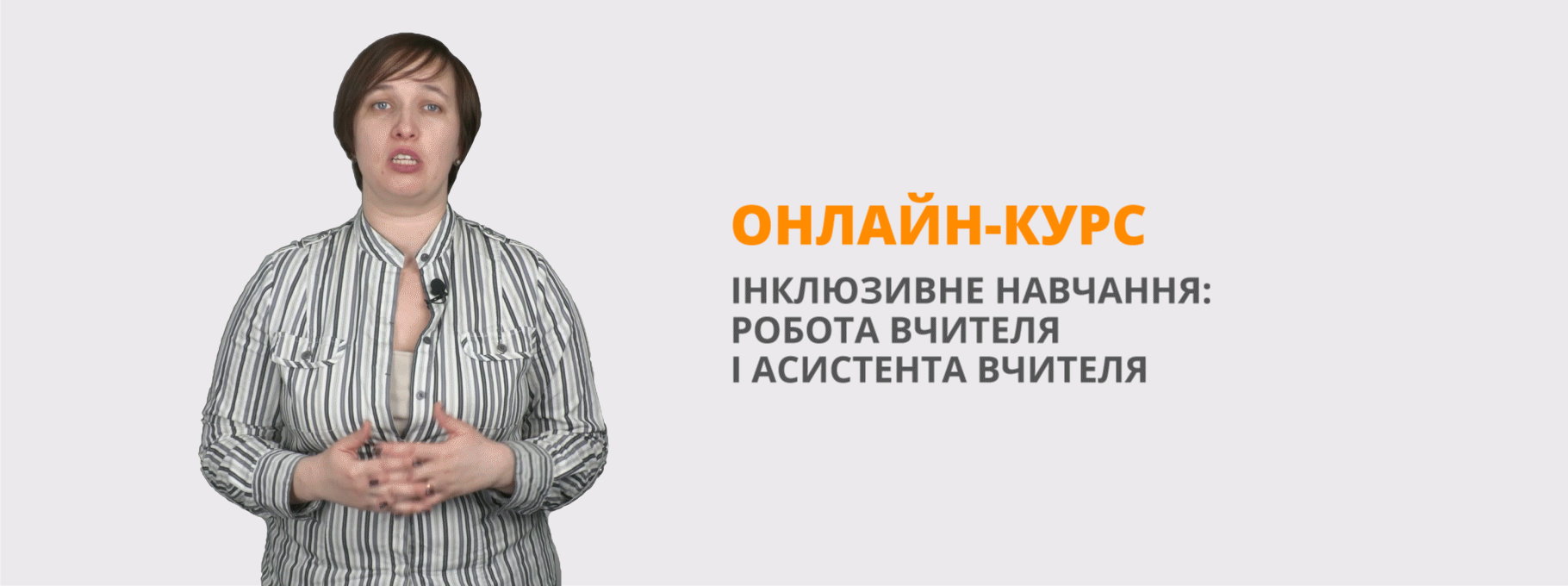Урок інтегрований "Вода - джерело життя"
This lesson aims to raise awareness of using water sparingly. It is designed to be significant due to its dedication to the World Water Day. Students will revise the course of Chemistry and Biology. As an optional final activity, the students design their own significance of water in the environment poster and present it to another group. This lesson is also an opportunity to review and practice the use of article 'the'. It is devoted to the students of the 8th form.
Автор: Ольга Фролова, вчитель англійської мови Новодмитрівського НВК
ABSTRACT
This lesson aims to raise awareness of using water sparingly. It is designed to be significant due to its dedication to the World Water Day. Students will revise the course of Chemistry and Biology. As an optional final activity, the students design their own significance of water in the environment poster and present it to another group. This lesson is also an opportunity to review and practice the use of article ‘the’. It is devoted to the students of the 8th form.
Дата: 18 березня 2019 р. (Всесвітній День Води – 22 березня)
Урок: №
Тема: Навколишнє середовище
Підтема: Джерело життя
Тип уроку: інтегрований
Цілі:
Практичні:
сприяти формуванню навичок писемного мовлення; сприяти вивченню і вживанню означеного артикля «the» у понадфразовій єдності та в тексті; сприяти засвоєнню нового лексичного матеріалу з курсу хімії та біології;
Розвиваючі:
сприяти розвитку в учнів уміння застосувати знання та навички у новій ситуації, сприяти розвитку мовленнєвих здібностей; сприяти удосконаленню фонетичного, інтонаційного слуху та мовної здогадки, вмінню логічного викладу думок, зміцнення різних видів пам’яті, уваги, уяви, готувати до участі в іншомовному спілкуванні; удосконалювати навички групової роботи, стимулювати креативність;
Освітні:
переконати учнів у необхідності доцільного використання водних ресурсів нашої планети у процесі роботи з біологічною моделлю;
Виховні:
сприяти вихованню свідомого ставлення до глобальних проблем людства, потреби в толерантності і співпраці під час групової роботи; пробуджувати пізнавальний інтерес до світової культурної спадщини; виховувати повагу до води як джерела життя.
Вік: 13-14 років
Рівень володіння мовою: A2-B1
Обладнання:
To the Top 3. H.Q. Mitchell students’ book, To the Top 3. H.Q. Mitchell workbook; PPP ‘Properties of Water’; plasticine and sticks for making molecule, mp3 ‘sound of river in the forest’; Track 29 (listening); computers and interactive grammar exercise; International Morse Code; microphone, video “The Water Challenge”, Cards 1,2,3
Очікувані результати:
- учні зможуть диференціювати вживання означеного артикля «the», узагальнити граматичний матеріал за допомогою мовленнєво спрямованих вправ;
- учні пояснюватимуть важливість води як джерела життя на планеті Земля;
- учні розроблять та продемонструють власні проекти – кінцевий продукт уроку.
PROCEDURE
|
№ |
Stages |
Teacher |
Student/students |
Teaching techniques |
|
І. |
Початок уроку 1.Оргмомент Greeting (1min) |
Nice to see you, dear students. Let’s make a circle.
I wish you good luck!
Take your sits, please. |
Hooray! Hooray! – 2 times We’re having a nice day! - 2 times Hooray! Hooray! – 2 times Let’s have fun today! - 2 times S-1: Emil, Have a nice day! S-2: Thank you! Maria, I wish you good luck! S-3: Thanks! I wish you an excellent mark for this lesson, Nazar! S-4: Thank you, Maria! ……. Students sit in a circle. |
Учні та вчитель стоять у колі, вітаються та висловлюють свої побажання один одному. Students and the teacher make a circle. Standing in this circle they wish everyone all the best and say good words. |
|
|
2. Введення в іншомовне середовище (3min) Introducing the topic and the aims of the lesson (3min) |
You see on the board the title of our lesson - A Source of Life. I can give you some hint.
Today at the end of our lesson you will make molecule of water, a poster ‘A Source of Life’: during our lesson you must get all the information you heard and at the end to put it on your poster.
|
Students guess. S-s answers. Water
H2O |
На екрані демонструється закодована тема уроку. Картки з Азбукою Морзе для кожного учня на парті. There is an international Morse code paper for every student on the desks. And on the board there is a coded title of the lesson for them to guess:
|
|
|
3. Фонетична розминка Phonetic drill (1min) |
Before speaking about water as a molecule, lets Pronounce some notions in English: Nucleus, Oxygen, distribution, Hydrogen, covalent bonds, Molecule.
|
S-s: Nucleus, Oxygen, distribution, Hydrogen, covalent bonds, Molecule. |
Слова подані на екрані/ дошці. Words are written on the board. |
|
ІІ. |
Основний етап 1. Актуалізація опорних знань (міжпредметні зв’язки) Actualization of students’ knowledge in Chemistry (4min) |
Look at the presentation and let’s discuss some points about water. It won’t be difficult for you because you know this material from your Chemistry and Biology lessons. Let’s read and answer
Why is the Boiling Point of Water so much greater than molecules of equal or greater molecular weight?
|
S-1: How many Protons in the nucleus of H? (1) S-2: How many Protons in the nucleus of O? (8) S-3: Which one has a stronger attraction of electrons? (Oxygen) Water is a Polar Molecule Polar Molecule: an uneven distribution of electrons. Negative Pole is near the O because the electrons (-) spend more time around the Oxygen end Positive Pole is near the H S-5: More energy is required to break up the extra hydrogen bonds as well as the covalent bonds formed between hydrogen and oxygen. That’s why the boiling point of water is so high because it takes more heat to break the bonds.
|
Students work in chain. |
|
|
2. Презентація нового матеріалу
Warm up Brainstorm (4 min) |
For your attention there is a video. Watch, listen and be ready to discuss what feelings and emotions it raises? Does it raise your awareness to use water sparingly? |
S-s: I feel bad because there are some people that are lack of water.
Of course it does. |
Мікрофон. Учні висловлюють свої думки та почуття щодо переглянутого відео. Microphone method. S-s talk their thoughts about the video |
|
|
3. Тренування нового матеріалу за допомогою аудіювання Listening (3min) |
I want you to know some significant facts about water. There is some useful and interesting information for you to listen and discuss. (There will be two teams OXYGENs and HYDROGENs) |
S-s listen to the text and do the tasks like matching the questions with the answers and the true/false task – ex.1 A, B p.72-73. They discuss these tasks in a group then collaborate with the other group by checking the answers. Then we discuss the answers in class. S-5: A person who weighs 40 kg contains 70 litres of water. False (A person who weighs 70 kg contains 40 litres of water). S-6: Mars is also called the Red Planet. True S-7: Mt Everest is as high as 29 Empire State Buildings one on top of the other. False (The Marianas Trench is as high as 29 Empire State Buildings one on top of the other). S-1: The Marianas Trench is in the Pacific Ocean. True S-2: When your mouth feels dry, you can get dizzy or have blurred vision. True
|
Teambuilding - знайди пару. There are some papers where letters ‘O’ and ‘H’ are written on the back of the paper sheet. Every student chooses one and joins his/her group.
|
|
|
4. Відпрацювання лексичного матеріалу A minute of relaxation Working with the Vocabulary (2min) |
Are there any unknown words for you? I have some for you to find their meaning |
S-s answers. Solar system – the sun and all the planets that move around it. Surface – the top part of an area of sea or land Examining – looking at something or someone very carefully Approximately – almost, about Dry – the opposite of wet Vision – the ability to see |
Teambuilding activity – find you pair. (Card-1) |
|
|
5. Відпрацювання граматичного матеріалу Grammar revision (4min) |
When do we use article ‘the’? Do you remember from the previous year course? Choose computer and let’s check you knowledge in Grammar. Discussion.
When don’t we use ‘the’?
I see you remember all the rules. But it’s better to evaluate your knowledge by doing the exercises in two teams OXYGENs and HYDROGENS |
S-1: ‘the’ is used for somebody or something specific or already mentioned; S-2: for things that are unique (the Earth, the Pyramids); S-3: with the superlative of adjectives or adverbs (the best); S-4: before names of seas, rivers, oceans, and deserts; S-5: before groups of islands; S-6: before nationalities; S-7: before people’s surnames, when we refer to the whole family… S-1: before names of people; S-2: before names of days and months; S-3: before abstract nouns; S-4: before names of squares, parks and lakes…. |
Робота за комп’ютером в парі interactive exercise. Або робота з картками (Card-2). Обговорення результатів Work on the computer and do the interactive exercise. Or if there is no opportunity to work with the computer, students may work in pairs and define when “the” is used and when it is not by putting the cards into two baskets (Card-2). Discuss the results. T-r always encourages students’ answers.
Teambuilding
|
|
|
6. Розвиток писемного мовлення + відпрацювання навичок Writing (5min) |
Every team has its task (ex.2 p.73 students’ book and exercise C page 58 workbook). Let’s check your tasks.
|
S-s work in groups and write the sentences.
S-s answers… |
Групова робота. |
|
|
8. Читання тексту + перевірка розуміння Reading (3min) |
In your WB there is some additional information about the significance of water in exercise D p.58. Look through and be ready to discuss what do the numbers refer to? |
S-s’ answers: 40% - the percentage of world population that doesn’t have enough water. 1993 – the year the first World Water Day was held. 22nd - The day in March when World Water Day is celebrated. 2006 – The year that the World Water Day was about water and culture. |
Групова робота. Team work. |
|
|
9.Етап проектної роботи Working on the project –posters Speaking (10min) |
|
Groups design posters, present their posters. Discuss them and evaluate. |
self-evaluation |
|
ІІІ |
Заключний етап 1. Рефлексія + коментоване виставлення оцінок Reflection+ Evaluation (3min) |
We are going to sum up all interesting facts about water we discussed today. Let’s play our favourite game “Cabbage”. |
Students discuss their work at the lesson, evaluate each other
|
“Cabbage” – учні передають «запитання за темою уроку», коли музика зупиняється – учень відповідає, інші можуть доповнити. “Cabbage” – students pass the cabbage made of sheets of paper where in every sheet there is a question to the lesson; when the music stops – the student, that has this cabbage, reads and answers the question. (Card – 3) |
|
|
2. Домашнє завдання Home assignment (2min) |
Your home task is to choose any you like from the suggested tasks:
|
S-s questions |
|
НОВОДМИТРІВСЬКИЙ НАВЧАЛЬНО-ВИХОВНИЙ КОМПЛЕКС
КОСТЯНТИНІВСЬКОЇ РАЙДЕРЖАДМІНІСТРАЦІЇ
МЕТОДИЧНИЙ КАБІНЕТ
ІНТЕГРОВАНИЙ УРОК З АНГЛІЙСЬКОЇ МОВИ, ХІМІЇ ТА БІОЛОГІЇ
ЗА ТЕМОЮ «ДЖЕРЕЛО ЖИТТЯ» У 8-Б КЛАСІ

|
|
Учитель англійської мови Новодмитрівського навчально-виховного комплексу Фролова Ольга Миколаївна |
 2019 рік
2019 рік
1


про публікацію авторської розробки
Додати розробку
